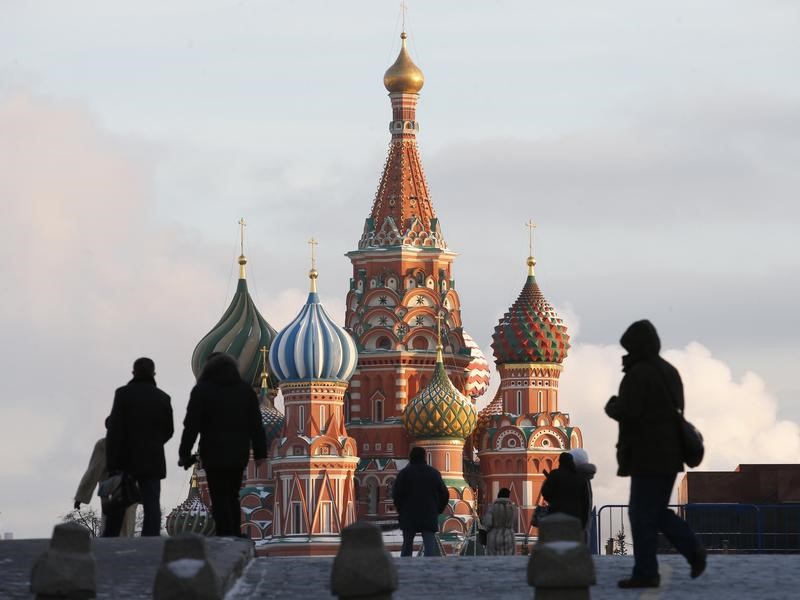(Bloomberg) -- Russia’s ruble is once again the year’s best performer in emerging-markets and benchmark bond yields have dropped to levels not seen since before the annexation of Crimea as a dovish central bank and renewed risk appetite help extend a rally.
The ruble shrugged off sliding oil prices and headed for its best week since March, while the rate on 10-year sovereign bonds, known as OFZs, dropped toward the lowest closing level since 2013. Central Bank Governor Elvira Nabiullina gave fresh impetus to the bond rally last week when she hinted during a rates meeting at deeper-than-expected cuts.
“The likelihood of seeing a key rate lower than 6.5% has grown since the meeting,” said Tatiana Evdokimova, an analyst at Nordea Bank in Moscow. “In the short term that will increase interest in OFZs.”
After cutting the key rate at a third consecutive meeting to 7% last week, the Bank of Russia removed mention of a 6%-7% neutral rate in its outlook, implying that there may be room to cut further. Emerging-markets assets also got a boost on Thursday when European Central Bank President Mario Draghi announced large-scale stimulus, including a bond-purchase program, and reduced its deposit rate.
Currencies in developing nations climbed for an eighth day on Friday, set for their longest stretch of gains since January 2018 on growing optimism for a resolution in the U.S.-China trade conflict.
Markets at a glance:
- The ruble was the second-best performer among developing-nation peers on Friday, strengthening 0.8% to 64.18 against the dollar as of 2:53 p.m. in Moscow
- The currency has handed carry traders a return of 4.2% this month
- The yield on 10-year ruble notes was two basis points lower at 6.98%, down 14 basis points in September
- The cost of insuring Russia’s soveriegn debt against default has tumbled to the lowest level since 2007
“With its positive real yield, negative net debt and budget surplus, the ruble looks extremely attractive as a carry trade,” Andrei Kochetkov, Otkritie Brokerage analyst, wrote in a note
From last week: Bank of Russia Signals More Easing
